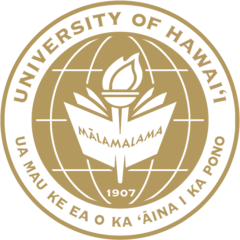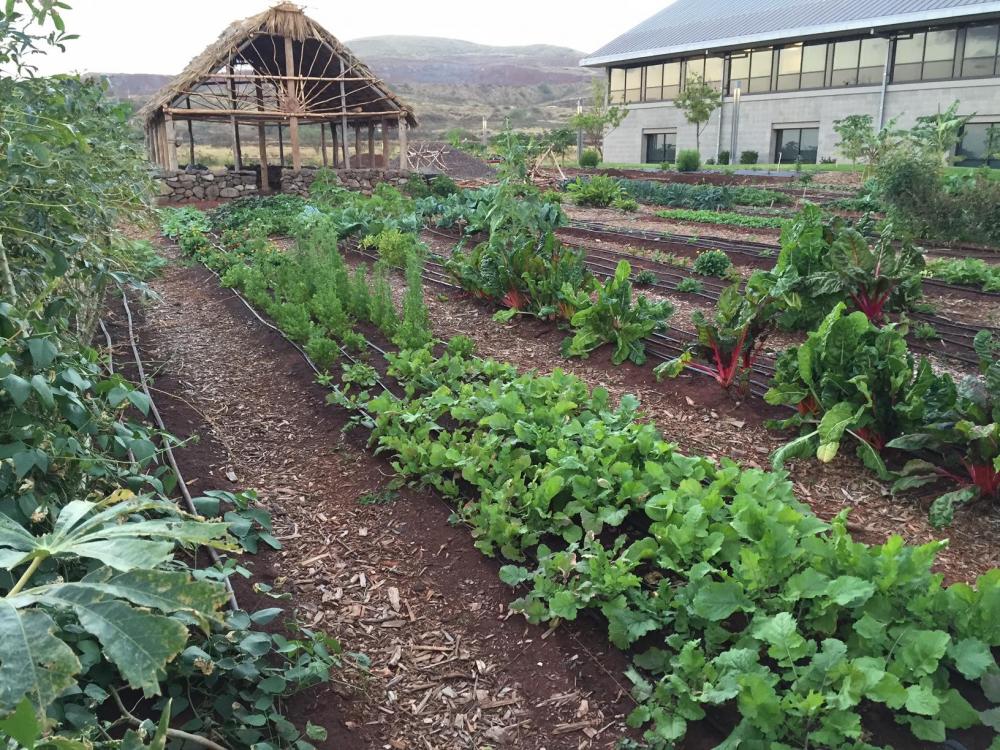University of Hawaii: Sustainable Community Food Systems (BS)
- Type:
- Food Systems
- Categories:
- Undergraduate Degree
- Keywords:
- General info
-
The BAS-SCFS is a multi-disciplinary, experiential and applied education program about key ecological and social issues in food and agricultural systems. It incorporates problem-based and hands-on learning to develop food system professionals capable of solving real-world problems and transitioning Hawai‘i agriculture toward greater ecological sustainability and social equity. BAS-SCFS courses are offered in person at the UHWO campus.
· Interdisciplinary breadth: Integrating natural science and social science theory and skills;
· Systems thinking: Understanding relationships among diverse components of farming and food systems, social institutions, and the environment;
· Skill development: Gaining practical skills, including agricultural production, communication, research, analysis, problem solving, critical thinking, teamwork and leadership;
· Experiential learning: Engaging in wide range of hands-on experiences in agricultural and food systems through laboratory exercises, field trips, internships, practicum courses and applied research opportunities;
· Linking course content to the real world: Engaging problem-based learning opportunities, bringing practitioners into the classroom, sending students into the field, and discussing and analyzing these experiences in depth;
· Community building: Being part of community that includes students, faculty, internship sponsors and practitioners, enhances learning and reflects the reality of professional life after college;
· Honors the host culture of Hawai‘i: Designed to develop youth leadership in West O‘ahu, the BAS-SCFS program aims to integrate the study of traditional knowledge systems, indigenous natural resource management and values with Western empirical sciences and ethics.
UH West Oʻahu’s Bachelor of Applied Science with a concentration in Sustainable Community Food Systems (BAS-SCFS) prepares students for a variety of careers including natural resource management, agriculture and food policy, K-12 education, sustainable inputs and value-added food businesses, social enterprise, non-profit organization management, social work and certified organic agriculture production and research.
A job in sustainability encompasses the concept of stewardship—the responsible management of resources. Sustainability professionals seek to improve an organization's environmental, social, and economic impact. Some have specific titles such as sustainability manager and director of corporate responsibility. Sustainability professionals in other roles may have experience as industrial managers, logistics (transportation, storage, and distribution) managers, environmental scientists, civil engineers, or recycling coordinators.
Future careers in sustainability management include:
· Farmer, rancher and other agricultural managers: $69,300
· Agriculture and food scientist: $58,610
· Kindergarten through elementary school teacher: $53,090
· High school teacher: $55,050
· Soil and plant scientists: $58,940
· Environmental scientists and specialists, including health: $62,920
· Conservation scientists: $59,930
· Social and community service managers: $59,970
· Food service managers: $47,960
· Environmental engineers: $79,050
The UH West Oʻahu Bachelor of Applied Science in Sustainable Community Food Systems was developed in partnership with the Waiʻanae Coast’s MAʻO Organic Farms and Kamehameha Schools’ ʻĀina-Based Education Division. Funding from Kamehameha Schools was used for academic program development, to conduct a food system assessment of Oahu, and in support of the UHWO Organic Campus Garden where students take part in hands-on learning directly tied to SCFS coursework. Bi-weekly weekend “work parties” are held in the UHWO Student Organic Garden where students, faculty and staff come together to prepare soil, build compost, plant fruit trees, install irrigation, sow seed, weed and harvest.




University of Hawaii: Sustainable Community Food Systems (BS)
Food Systems